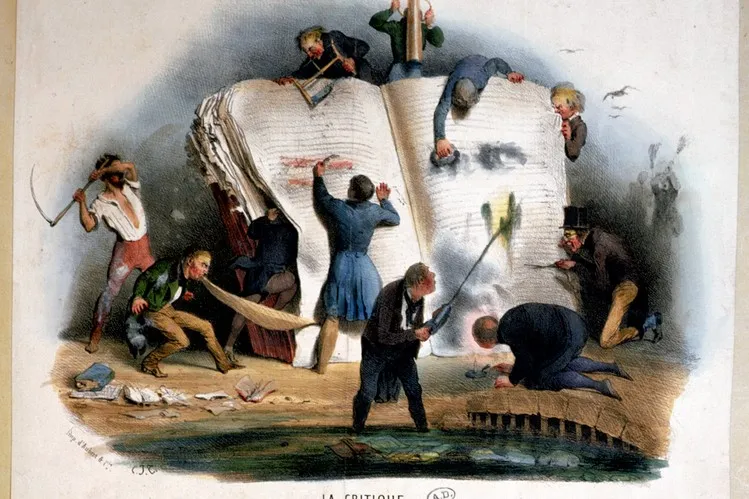Whenever we try to comprehend a work/piece of literature, we do so with certain pre-conceived notions and ideas, we may or may not be aware of. There exists no neutral or objective study of literature. Therefore, it is imperative to have a thorough understanding of the “notions and ideas” that operate in the production of meaning(s) of literary texts. Literary theory, according to the Internet Encyclopedia of Philosophy, is “the body of ideas and methods we use in the practical reading of literature. By literary theory we refer not to the meaning of a work of literature but to the theories that reveal what literature can mean. Literary theory is a description of the underlying principles, one might say the tools, by which we attempt to understand literature. All literary interpretation draws on a basis in theory but can serve as a justification for very different kinds of critical activity.”
Literary Theory and Literary Criticism
Literary theory and literary criticism are closely related concepts within the field of literary studies, but they have distinct focuses and purposes. “All critical practice regarding literature depends on an underlying structure of ideas in at least two ways: theory provides a rationale for what constitutes the subject matter of criticism—”the literary”—and the specific aims of critical practice—the act of interpretation itself.” (Internet Encyclopedia of Philosophy). It can be better explained by using a popular example. Some scholars like to think of literary theories as eyeglasses or camera lenses through which they can examine and evaluate works of literature or other pieces of art. Then, what they see through each lens (each theory) becomes the focus of their literary criticism.
While literary theory provides overarching frameworks and concepts that inform the study of literature as a whole, literary criticism involves the application of those frameworks to specific texts in order to analyze and interpret their content, style, and themes. Both literary theory and literary criticism are essential components of the study of literature, working in tandem to deepen our understanding and appreciation of literary works.
History of Literary Theory
The practice of literary theory became a profession in the 20th century, but it has historical roots that run as far back as ancient Greece (Aristotle’s Poetics is an often cited early example), ancient India (Bharata Muni’s Natya Shastra), and ancient Rome (Longinus’s On the Sublime). From ancient civilizations to the modern era, literary theory has developed in response to changing social, philosophical, and artistic contexts.
Specific theories are distinguished not only by their methods and conclusions, but even by how they create meaning in a “text”. However, some theorists acknowledge that these texts do not have a singular, fixed meaning which is deemed “correct”.
Throughout history, literary theory has evolved in response to shifting philosophical currents, artistic movements, and cultural shifts. It continues to be a dynamic field that shapes our understanding of literature’s role in society, the complexities of human expression, and the connections between texts, cultures, and ideologies.

